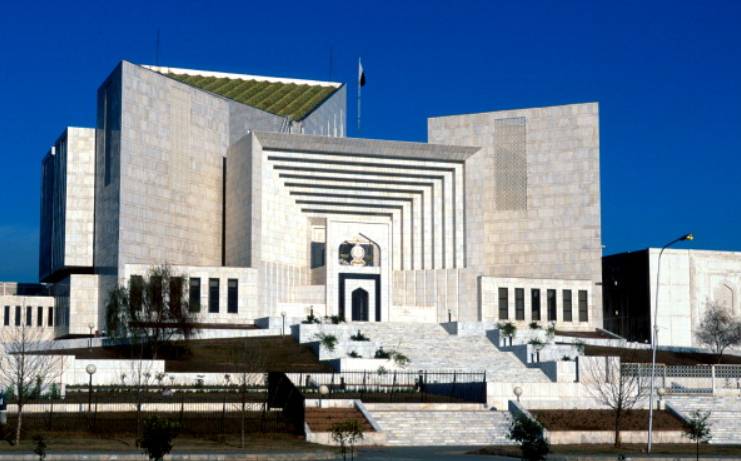
The Supreme Court in a nine-page judgement urged the state to 'take utmost care' while dealing with blasphemy cases. The judgement came during the bail hearing of a Christian sanitary worker who has been imprisoned since last year over blasphemy charges.
The post-arrest bail hearing of Christian sanitary worker Salamat Mansha Masih took place on Thursday, and the case was heard by a division bench of the apex court consisting of Justice Isa and Justice Syed Mansoor Ali Shah. Masih, who was employed as a sweeper with the Lahore Waste Management Company (LWMC), had been accused of committing blasphemy and had been imprisoned since last year.
In a nine-page judgement, Justice Qazi Faez Isa said, "Unfortunately, such cases receive wide publicity which has an adverse effect and may also jeopardise a fair trial."
“A section 295-C offence prescribes only punishment by death,” the judgement stated and said, "Therefore, utmost care must be exercised by all concerned that no injustice in the administration of justice takes place”. In the statement, it was also mentioned that 'irresponsible and sensationalised' broadcasts often repeat what the alleged offender had said, and claimed that 'those repeating this may themselves be committing the same offence'.
Justice Isa, noting that there were many instances of false allegations leveled to set personal scores or to cause mischief, said that 'moral outrage and righteous zeal' should not by-pass the 'general standard of proof'. He urged state institutions to 'proceed with meticulosity and diligently investigate the alleged crime' in such 'serious and sensitive' cases.
The judgement also said that “abiding by Islamic jurisprudential principles, applying the constitutionally guaranteed right to a fair trial and due process, and acting prudently to ensure that an innocent is not convicted wrongly in respect of offences relating to religion, when there is only the improbable oral testimony of witnesses, then there must be corroboration”.
The post-arrest bail hearing of Christian sanitary worker Salamat Mansha Masih took place on Thursday, and the case was heard by a division bench of the apex court consisting of Justice Isa and Justice Syed Mansoor Ali Shah. Masih, who was employed as a sweeper with the Lahore Waste Management Company (LWMC), had been accused of committing blasphemy and had been imprisoned since last year.
In a nine-page judgement, Justice Qazi Faez Isa said, "Unfortunately, such cases receive wide publicity which has an adverse effect and may also jeopardise a fair trial."
“A section 295-C offence prescribes only punishment by death,” the judgement stated and said, "Therefore, utmost care must be exercised by all concerned that no injustice in the administration of justice takes place”. In the statement, it was also mentioned that 'irresponsible and sensationalised' broadcasts often repeat what the alleged offender had said, and claimed that 'those repeating this may themselves be committing the same offence'.
Justice Isa, noting that there were many instances of false allegations leveled to set personal scores or to cause mischief, said that 'moral outrage and righteous zeal' should not by-pass the 'general standard of proof'. He urged state institutions to 'proceed with meticulosity and diligently investigate the alleged crime' in such 'serious and sensitive' cases.
The judgement also said that “abiding by Islamic jurisprudential principles, applying the constitutionally guaranteed right to a fair trial and due process, and acting prudently to ensure that an innocent is not convicted wrongly in respect of offences relating to religion, when there is only the improbable oral testimony of witnesses, then there must be corroboration”.

